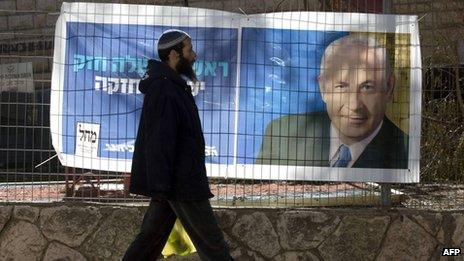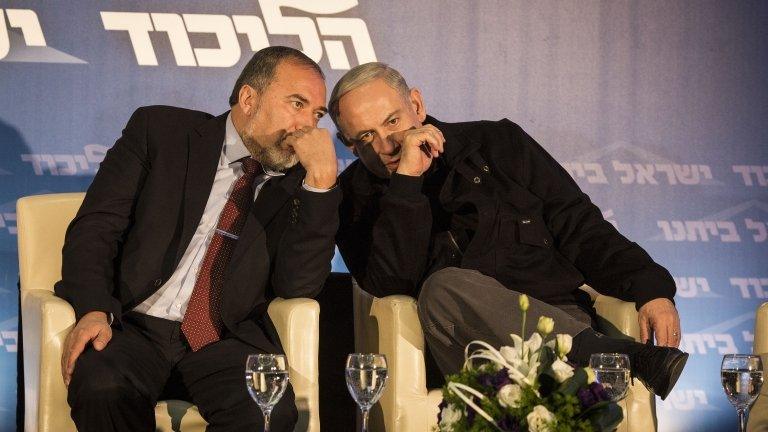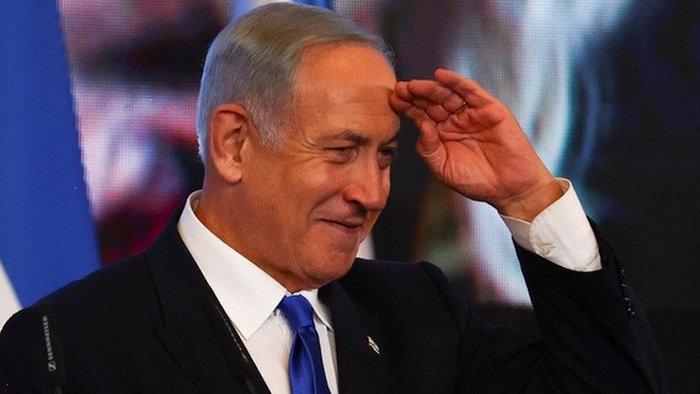Israel election: Netanyahu 'will not dismantle settlements'
- Published

Peace talks have stalled over the issue of settlements
Israel's prime minister has said no Jewish settlements in the West Bank will be removed during his next term in office if he wins elections on Tuesday.
Benjamin Netanyahu told Israel's Maariv newspaper: "The days when bulldozers uprooted Jews are behind us, not in front of us."
The future of Jewish settlements has been a key stumbling block in peace talks with the Palestinians.
Polls predict Mr Netanyahu will comfortably win next week's polls.
About 500,000 Jews live in more than 100 settlements built in the West Bank and East Jerusalem since Israel occupied the area in 1967. The international community considers the settlements illegal, though Israel disputes this.
'Love for the land'
Asked if he could promise no settlements would be dismantled during the next four years, Mr Netanyahu replied: "Yes."
"We haven't uprooted any settlements, we have expanded them," he added. "Nobody has any lessons to give me about love for the Land of Israel or commitment to Zionism and the settlements."
A report this week by the Israeli settlements watchdog group Peace Now said tenders and approvals for construction in East Jerusalem had reached record levels, external under Mr Netanyahu's government.
It also said isolated settlements accounted for nearly 40% of all new constructions, nearly double that of previous years.
Mr Netanyahu has long championed settlements, but has also said he would be prepared to make "painful concessions" - alluding to some settlement withdrawals - in a final peace agreement with the Palestinians.
Palestinians insist all settlements must be removed from the West Bank and East Jerusalem, where they want to establish a future state.
Peace talks broke down over the issue of settlements in 2010 and Palestinians have refused to resume negotiations unless Israel freezes settlement building first.
The new Israeli government is expected to be one of the most right-wing in the country's history. There has been a surge of support for a new ultra-nationalist religious party, Habayit Hayehudi, which calls for the annexation of large parts of the West Bank and is likely to form part of ruling coalition.
- Published18 January 2013

- Published16 January 2013
- Published23 January 2013

- Published21 November 2024
